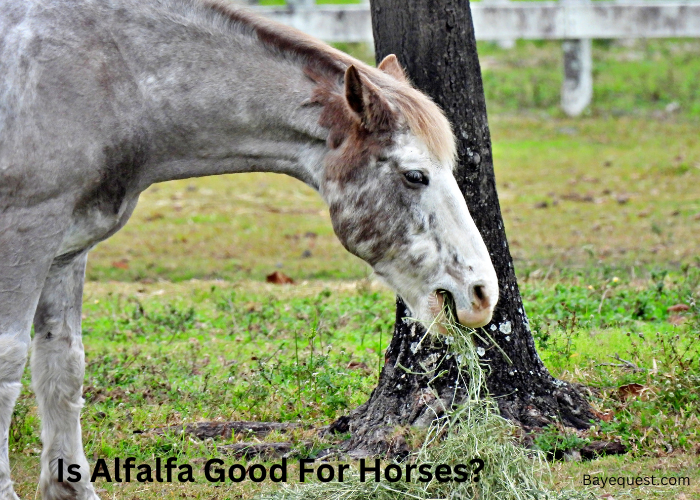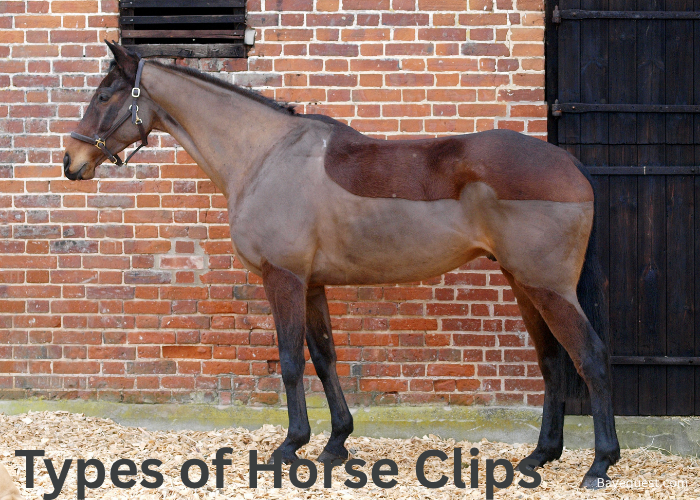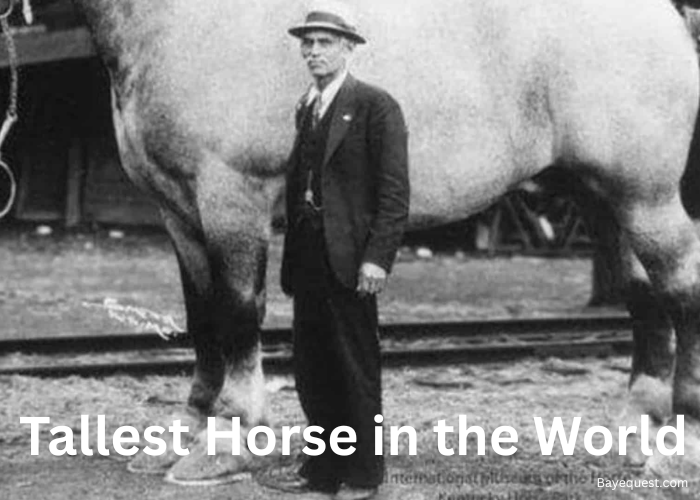Alfalfa is a top choice for many horse owners. Rich in nutrients, it fuels energy and adds a shine to a horse’s coat.
But is it the best feed for all horses? Some say yes; others aren’t so sure.
With its high protein and calcium levels, alfalfa has benefits but also comes with caution.
For those considering adding it to their horse’s diet, a closer look at its effects might help decide.
So, is alfalfa worth the hype? Let’s dig in and find out.
Is Alfalfa Good For Horses? Key Takeaway
Yes, alfalfa is good for horses, especially when more nutrients are needed. Alfalfa provides high levels of digestible energy, protein, and calcium, making it nutrient-dense compared. It supports muscle development and stamina but may be too rich in energy for some horses, so portions should be carefully managed.
What is Alfalfa?
Alfalfa is a type of forage, and it’s a favorite among horse owners. It’s a legume, like peas and beans, which is super nutrient-rich.
Alfalfa has a high protein content. This makes it great for muscle development and energy.
It’s also packed with vitamins and minerals, like calcium and magnesium. These are essential for a horse’s overall health.
You’ll find alfalfa in different forms. There’s alfalfa hay, which is the dried plant. It looks like regular hay but has more leaves.
Then, there are alfalfa pellets and cubes.
These are made from ground-up alfalfa and are easy to feed and store. They’re great if you need a more convenient option.
In short, alfalfa is a nutrient-rich forage that comes in various forms.
Pros and Cons of Alfalfa
Pros
1. Alfalfa is rich in protein, which is excellent for muscle development and energy. This makes it ideal for performance horses and growing foals.
2. It is packed with essential vitamins and minerals. These nutrients support overall health and well-being.
3. The high fiber content in alfalfa promotes healthy digestion. It helps keep the digestive system moving smoothly, reducing the risk of colic and other digestive issues.
4. Alfalfa provides the necessary nutrients for lactating mares, helping them produce quality milk for their foals.
5. The calories in alfalfa can provide an energy boost.
Cons
1. Alfalfa is high in calcium, which can be problematic if fed in excess. It can lead to imbalances, especially in horses that don’t require a lot of calcium.
2. Alfalfa is calorie-dense, which can contribute to weight gain if not balanced with other forages. This is a concern for horses that are prone to obesity.
3. Feeding too much alfalfa without other types of forage can cause nutritional imbalances. Mixing it with other feeds is important to ensure a balanced diet.
4. The high calcium content can sometimes lead to bladder stones in horses.
5. Alfalfa is more expensive and less readily available than other types of hay.
Benefits of Alfalfa for Horses
The benefits of alfalfa include:
1. High protein content
Alfalfa is rich in protein, crucial for muscle development and repair. This is especially beneficial for performance horses that need strong muscles to perform at their best.
Growing foals and lactating mares also benefit from the high protein, supporting growth and milk production.
2. Nutrient-dense
Alfalfa is packed with essential vitamins and minerals. It contains vitamins A, D, and E, vital for a horse’s immune system, bone health, and overall vitality.
The high mineral content, including calcium, magnesium, and potassium, supports various bodily functions.
3. Digestive Health
The high fiber content in alfalfa helps maintain a healthy digestive system. Fiber is essential for proper gut function and prevents issues like colic.
Alfalfa’s fiber content also helps to keep the digestive tract moving smoothly. This reduces the risk of impactions and other digestive problems.
4. Energy boost
Alfalfa provides a significant amount of calories, which can be an excellent energy source for horses with high energy needs.
Performance horses benefit from the extra energy that alfalfa provides.
5. Improved body condition
Horses underweight or having difficulty maintaining their body condition can benefit from alfalfa’s calorie-dense nature.
The additional calories and nutrients help gain and maintain a healthy weight, especially in horses with poor body condition.
6. Palatability
Alfalfa is highly palatable, meaning horses generally find it tasty. This can be particularly useful for picky eaters or horses that have lost their appetite.
Offering alfalfa can encourage them to eat more and get the nutrition they need.
7. Enhanced milk production
Lactating mares benefit from alfalfa’s high nutrient content, which supports milk production.
The protein and calcium in alfalfa help mares produce high-quality milk.
This ensures that foals get the necessary nutrients for healthy growth and development.
8. Versatility in feeding
Alfalfa is available in various forms, such as hay, pellets, and cubes, providing flexibility in feeding options.
This makes it easier to incorporate alfalfa into different feeding regimes based on the specific needs and preferences of the horse.
Nutritional Content of Alfalfa
| Nutrient | Amount (per kg) | Benefits |
| Crude Protein | 17-20% | Muscle development and repair |
| Calcium | 12-15 g | Bone health and lactation support |
| Phosphorus | 2-3 g | Energy metabolism and bone health |
| Magnesium | 2-3 g | Muscle and nerve function |
| Potassium | 15-25 g | Electrolyte balance and muscle function |
| Vitamin A | 16,000-20,000 IU | Vision, immune function, and reproduction |
| Vitamin D | 1,000-2,000 IU | Bone health and calcium absorption |
| Vitamin E | 100-200 mg | Antioxidant, muscle health |
| Fiber (ADF) | 30-35% | Digestive Health |
| Fiber (NDF) | 40-50% | Digestive Health |
Forms of Alfalfa for Horses
Alfalfa comes in various forms. They include:
Alfalfa hay
Alfalfa hay is the most common form of alfalfa. It is made from the dried stems and leaves of the alfalfa plant.
Typically, it is fed as long-stem forage, either on its own or mixed with other types of hay.
Alfalfa hay provides high fiber, which aids in digestion and offers a natural grazing experience for horses.
However, it needs to be stored properly to avoid mold and spoilage.
Alfalfa pellets
Alfalfa pellets are made from ground alfalfa compressed into small, dense pellets. They are easy to measure and feed and are often used to supplement regular forage.
They are convenient to store and handle, and there is less waste than loose hay.
One consideration is that horses might eat pellets too quickly, which can lead to digestive issues if not monitored.
Alfalfa cubes
Alfalfa cubes are larger than pellets and are made from chopped alfalfa compressed into cube shapes. Before feeding, these cubes are soaked in water to soften and expand.
Alfalfa cubes are convenient for storage and transport and help ensure that horses get adequate roughage.
Soaking the cubes to prevent choking and ensure proper digestion.
Alfalfa meal
Alfalfa meal is finely ground alfalfa, often used as a supplement or mixed into grain feeds. It is commonly added to grain mixes to boost the nutritional content.
Alfalfa meal for horses is easily digestible and is a good source of nutrients for horses with specific dietary needs.
However, due to its fine texture, it is not typically used as the sole forage source.
Alfalfa/grass mix
This is a blend of alfalfa and grass hays, combining the benefits of both types.
An alfalfa/grass mix provides a balanced diet with the high protein of alfalfa and the fiber of grass hay.
This mix reduces the risk of excessive calcium intake and offers a more balanced nutrient profile.
The exact nutrient content can vary depending on the mix’s alfalfa-to-grass ratio.
Alfalfa pasture
Alfalfa can also be grown and grazed as pasture. Horses can graze on fresh alfalfa directly from the field.
This gives them the freshest and most natural alfalfa, rich in moisture and nutrients.
Grazing on alfalfa pasture allows horses to exhibit natural grazing behaviors and can be highly palatable.
However, there are some considerations. Fresh alfalfa can be rich and, if not managed properly, can lead to digestive upset or bloating.
Alfalfa haylage
Alfalfa haylage is semi-fermented, high-moisture forage. It is harvested at an early growth stage, chopped, and then ensiled to undergo a partial fermentation process.
This preserves the nutrients and makes it highly palatable. Haylage is beneficial for its high nutrient content and digestibility.
Haylage is often fed to performance horses or those needing extra nutrition. However, it must be stored properly to prevent spoilage and mold.
Once opened, it must also be used quickly to prevent fermentation from continuing uncontrolled.
Alfalfa chop
Alfalfa chops, or chopped alfalfa or chaff, are short lengths of grass chopped into pieces. This form is often mixed with other forages or grains to create a balanced feed.
Alfalfa chop provides high fiber and is easier to chew and digest. This makes it suitable for older horses or those with dental issues.
It’s also useful for adding bulk to the diet without significantly increasing calories.
However, it must be stored properly to prevent spoilage and should be introduced gradually to avoid digestive upset.
Digestive Health and Alfalfa
Alfalfa plays a significant role in promoting digestive health in horses. One of its key benefits is its high fiber content.
Fiber is crucial for maintaining a healthy digestive system in horses. It helps keep the digestive tract moving smoothly, preventing issues like colic and impaction.
The structure of alfalfa hay provides long-stem fiber, stimulating chewing and saliva production.
Increased saliva helps buffer stomach acid, reducing the risk of gastric ulcers.
Alfalfa is also easier to digest compared to some other forages. This is particularly beneficial for horses with sensitive stomachs or those recovering from illness.
Additionally, alfalfa’s protein content supports the growth and repair of the digestive tract tissues.
For horses with ulcers or other gastrointestinal issues, this can aid in healing and maintaining the integrity of the gut lining.
However, while alfalfa promotes digestive health, you must introduce it gradually into a horse’s diet.
Sudden changes can upset the digestive balance and cause diarrhea or gas.
In summary, alfalfa supports digestive health through its high fiber content.
Alfalfa for Different Types of Horses
Alfalfa is a versatile forage that can benefit a wide range of horses. Let’s find out how alfalfa can be tailored to meet your horse’s needs.
Performance horses
Performance horses require high energy and protein levels to support their intense physical activities.
Due to its high protein content, Alfalfa is an excellent choice for these horses.
The extra calories from alfalfa provide the necessary energy to sustain their performance.
Additionally, the vitamins and minerals in alfalfa help maintain overall health and stamina.
However, alfalfa should be balanced with other forage and grains to meet all their dietary needs.
Growing foals
Young, growing horses need more nutritional support to support their rapid development. Alfalfa provides a rich source of protein, which is crucial for their growth.
The calcium content in alfalfa also supports bone development, ensuring that foals grow strong and healthy.
Feeding alfalfa to foals can help them get the necessary nutrients for their early stages of life.
However, it should be balanced with other forages to prevent excessive calcium intake and ensure a well-rounded diet.
Lactating mares
Lactating mares have increased nutritional requirements to produce milk for their foals.
Alfalfa benefits these mares because it provides high levels of protein and calcium, essential for milk production.
The added nutrients help mares maintain their body condition and energy levels while nursing.
Including alfalfa in their diet ensures that the mare and foal receive the necessary nutrients.
Senior horses
Older horses often face challenges in maintaining weight and muscle mass.
Alfalfa is advantageous for senior horses because it is highly digestible and provides easily accessible nutrients.
The protein in alfalfa helps older horses maintain muscle mass. Fiber aids in digestive health.
Alfalfa can be particularly useful for seniors with dental issues who struggle to chew long-stem hay.
Feeding alfalfa in pellet or cube form can make it easier for them to consume and digest.
Underweight horses
Alfalfa can benefit underweight horses or have difficulty maintaining their body condition.
The extra calories and nutrients help these horses gain weight and improve their overall condition.
Alfalfa’s palatability encourages underweight horses to eat more, ensuring they get the nutrition they need.
Horses with ulcers
Horses prone to gastric ulcers can benefit from alfalfa due to its high calcium content and buffering effect on stomach acid.
Chewing alfalfa stimulates saliva production, which helps neutralize stomach acid.
Including alfalfa in the diet can relieve horses with existing ulcers and help prevent the development of new ones.
Read more on treating horses with ulcers naturally to explore additional ways to support your horse’s well-being and keep their stomach healthy and comfortable.
How Much Alfalfa Should a Horse Consume?
Figuring out how much alfalfa your horse should eat depends on a few things.
First, think about the horse’s size and weight. Bigger horses need more food, of course.
A general rule is to feed about 1.5 to 2% of the horse’s body weight in forage each day. So, if your horse weighs 1,000 pounds, that’s about 15 to 20 pounds of forage daily.
Next, consider your horse’s activity level. Performance horses work hard and might need more alfalfa for extra energy and protein.
But be careful not to overdo it. Too much alfalfa can lead to weight gain or digestive issues.
For horses prone to weight gain, like easy keepers, limit the amount of alfalfa and mix it with other, lower-calorie forage like grass hay.
This helps keep their diet balanced without adding too many calories.
Young, growing horses and lactating mares also need more alfalfa for protein and calcium.
But again, balance is key. Too much calcium can cause problems, so mix alfalfa with other types of forage.
Always introduce alfalfa gradually to avoid upsetting your horse’s stomach. Start with small amounts and slowly increase over time.
Potential Concerns with Feeding Alfalfa
1. Hydrolyzable carbohydrates
Alfalfa contains high levels of hydrolyzable carbohydrates. These can cause spikes in blood sugar. For horses prone to laminitis or metabolic issues, this is a concern.
Limit alfalfa for these horses. Choose lower-sugar forage instead.
2. Behavioral reactivity
Some horses get hyperactive on alfalfa. The high-energy content can make them more spirited.
If your horse becomes jumpy or hard to handle, it might be the alfalfa. Try reducing the amount or mixing it with other hays.
3. Calcium to phosphorus ratio
Alfalfa has a lot of calcium but not much phosphorus. This imbalance can cause bone issues, especially in young horses.
Ensure the diet has enough phosphorus to match the calcium. Mixing alfalfa with other feeds helps correct this ratio.
4. Enteroliths
Enteroliths are stones that form in the intestines. High calcium in alfalfa can contribute to their formation.
Horses in regions with hard water are more at risk. Monitor for signs of colic and consider reducing alfalfa if stones are a concern.
5. Urinary stones
Too much calcium can also lead to urinary stones. These stones can cause discomfort and health issues.
Horses prone to stones should have their calcium intake monitored. Mix alfalfa with other forage to keep calcium levels in check.
6. Hoof sensitivity
Some horses may develop sensitive hooves on a high-alfalfa diet. The rich nutrients can sometimes lead to hoof problems.
If you notice changes in hoof health, consider adjusting their diet. Balance alfalfa with other types of hay to support hoof health.
7. Respiratory irritation
Alfalfa can be dusty, which might irritate a horse’s respiratory system. Horses with respiratory issues, like heaves, might struggle with alfalfa.
Wetting the hay can reduce dust. Alternatively, consider using pelleted or cubed forms.
8. Blister beetles
Blister beetles can sometimes be found in alfalfa hay. These beetles are toxic and can cause serious illness or death if ingested.
Inspect alfalfa hay carefully and buy from reputable sources to minimize this risk.
9. Black blotch disease
Black blotch disease is a fungal infection that can affect alfalfa. Infected hay is less nutritious and can be harmful.
Always check for mold or discoloration. Store alfalfa properly to prevent fungal growth.
How to Safely Introduce Alfalfa to a Horse’s Diet
Introducing alfalfa to your horse’s diet needs to be done slowly.
Start with small amounts. Mix a little alfalfa with their regular hay. This helps their digestive system adjust without causing upset.
Over a week or two, gradually increase the amount of alfalfa. Watch for any signs of digestive trouble, like loose stools or colic.
Slow down the transition or reduce the alfalfa if you see any issues.
Make sure to balance alfalfa with other forages. Alfalfa is high in protein and calcium.
Mixing it with grass hay can help maintain a balanced diet. This prevents nutritional imbalances that could cause health problems.
Always ensure your horse has plenty of fresh water. Alfalfa, with its higher protein content, can make them drink more.
Adequate hydration is crucial to helping the horse process the extra nutrients.
Introduce new feeds during a period of stability. Avoid making changes during times of stress, like after moving or during extreme weather.
This will help your horse better handle the dietary change.
Consult your vet if you’re unsure about adding alfalfa to your horse’s diet. They can provide specific advice based on your horse’s health and nutritional needs.
In summary, introduce alfalfa slowly, mix it with other forage, provide plenty of water, and monitor your horse closely.
These steps help ensure a smooth transition and maintain your horse’s health.
Alfalfa Myths Vs. Facts
Myth 1: Alfalfa causes kidney problems in horses
Fact: Alfalfa is high in calcium but doesn’t cause kidney problems in healthy horses. The excess calcium is usually excreted in urine. However, consult your vet before feeding alfalfa to horses with pre-existing kidney issues.
Myth 2: Alfalfa makes horses hyperactive
Fact: Some horses may seem more energetic on alfalfa due to its higher calorie content. But not all horses will react this way. It depends on the individual horse and its overall diet. Balance is key to managing energy levels.
Myth 3: Alfalfa is only for performance horses
Fact: While performance horses benefit from the high protein and energy, alfalfa can also be suitable for other horses. Growing foals, lactating mares, and senior horses can also benefit from its rich nutrient profile. The amount and balance with other forage make the difference.
Myth 4: Alfalfa causes colic
Fact: Alfalfa, when introduced properly, does not cause colic. Sudden changes in diet, including alfalfa, can cause digestive upset. Gradual introduction and balancing with other forages can prevent colic.
Myth 5: Alfalfa shouldn’t be fed to horses prone to laminitis
Fact: Horses prone to laminitis should have controlled diets, but alfalfa can still be a part of it. It’s lower in sugar compared to some other hays. However, it should be fed in moderation and balanced with other forages.
Myth 6: Alfalfa is too rich for senior horses
Fact: Senior horses can benefit from alfalfa’s digestibility and nutrient content. It can help maintain weight and muscle mass. As with any horse, balance, and monitoring are crucial to ensure it meets their specific needs.
Myth 7: All Alfalfa is the same
Fact: Alfalfa varies in quality and nutrient content. Harvest time, growing conditions, and processing methods affect its quality. Choose high-quality alfalfa and check for mold or contaminants.
Myth 8: Alfalfa causes urinary stones
Fact: While high calcium can contribute to stones in some horses, not all will develop this issue. Monitoring calcium intake and ensuring a balanced diet helps mitigate this risk. Regular vet check-ups can catch any potential issues early.
Myth 9: Alfalfa is hard to digest
Fact: Alfalfa is easier to digest than many other forages. Its high-quality fiber and nutrient content support digestive health. Introducing it gradually ensures your horse’s digestive system adjusts smoothly.
When to Avoid Alfalfa
Alfalfa is not always the best choice for every horse. Some horses have specific health conditions or dietary needs that make alfalfa less suitable.
Understanding when to avoid feeding alfalfa is crucial for maintaining your horse’s health and well-being. Let’s explore the situations and conditions where alfalfa might not be the best option for your horse.
1. Horses with kidney issues
Horses with existing kidney problems should avoid alfalfa.
The high calcium content can further stress their kidneys. Always consult your vet if your horse has kidney concerns.
2. Horses prone to urinary stones
If your horse is prone to urinary stones, limiting or avoiding alfalfa is best.
The high calcium levels can contribute to stone formation. Opt for low-calcium forages instead.
3. Easy keepers
Horses that gain weight easily, known as easy keepers, should avoid large amounts of alfalfa. It’s calorie-dense and can lead to weight gain.
Mixing a small amount with lower-calorie hay can help maintain a healthy weight.
4. Horses with metabolic issues
Horses with metabolic disorders like Cushing’s or insulin resistance should have controlled diets.
Alfalfa’s higher protein and calorie content might not be suitable. Consult with a vet to tailor a safe diet.
5. Horses with a history of laminitis
While not all laminitic horses need to avoid alfalfa, it should be used cautiously. The rich nutrient content can exacerbate conditions in sensitive horses.
Monitor their response closely and consult your vet.
6. Horses with dental problems
Horses with severe dental issues may struggle to chew alfalfa hay properly.
Consider alfalfa pellets or cubes, which can be soaked to make them easier to chew and digest.
7. Horses with digestive sensitivity
Some horses have sensitive digestive systems that don’t tolerate rich feeds well.
Introduce alfalfa gradually and monitor for any signs of digestive upset. If problems arise, consider reducing or avoiding alfalfa.
8. Horses with behavioral issues
If your horse becomes overly energetic or reactive on alfalfa, it might be best to avoid it.
Some horses react to the high-energy content. Reducing or eliminating alfalfa can help manage their behavior.
9. Horses in regions prone to blister beetles
Blister beetles can contaminate alfalfa hay and are highly toxic to horses.
If you live in an area prone to blister beetles, be cautious and inspect hay thoroughly. Consider alternative forages to avoid this risk.
Alfalfa Alternatives for Horses
While alfalfa is a nutrient-rich option for many horses, it’s not always the best fit for every horse’s diet.
Here are some alfalfa alternatives that can provide balanced nutrition and meet the unique needs of your horse.
- Grass hay
- Timothy hay
- Orchard grass hay
- Bermuda grass
- Mixed grass hay
- Oat hay
- Beet pulp
- Haylage
- Chaff
Conclusion
So, is alfalfa good for horses? Yes, it can be, but it depends on your horse’s needs.
Alfalfa is packed with protein, vitamins, and minerals. It’s great for performance horses, growing foals, and lactating mares.
But it’s not perfect for every horse. Easy keepers, horses with metabolic issues, or those prone to kidney stones might need less or none.
The key is balance. Introduce it slowly, mix it with other forages, and always monitor your horse’s health.
Talk to your vet to make the best choice. When used right, alfalfa can be a valuable part of your horse’s diet.








